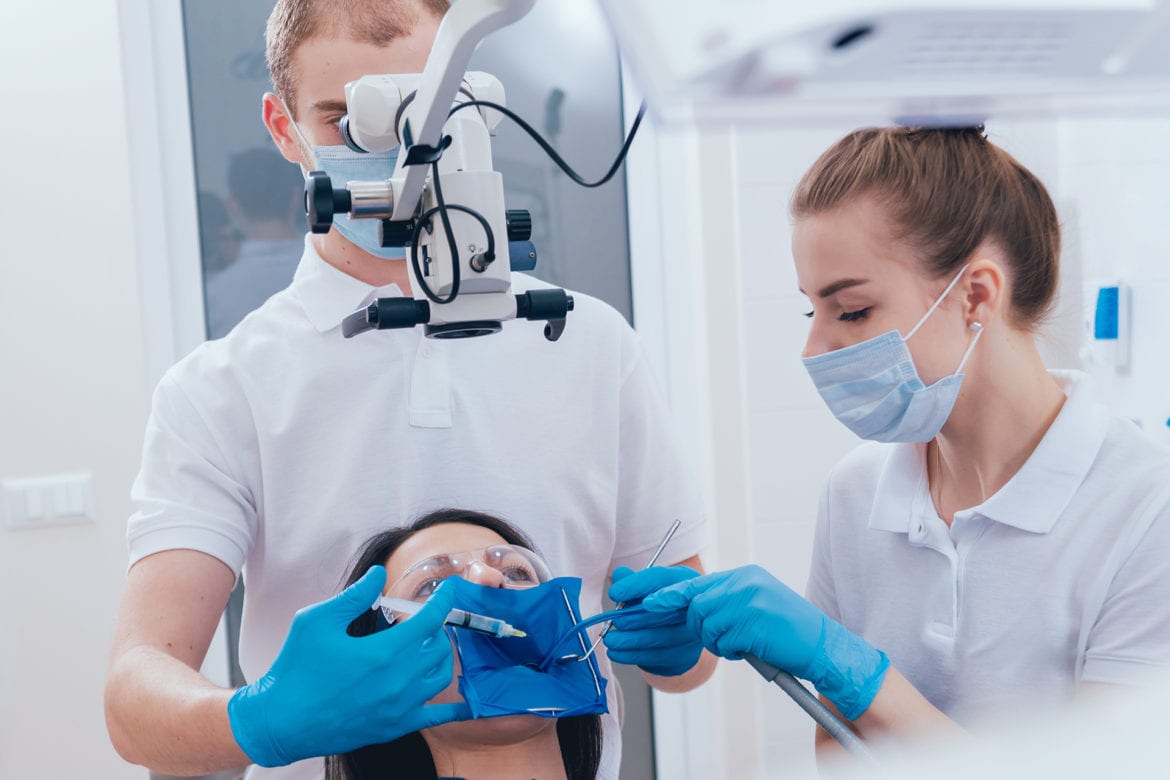The claim: A root canal can shut down 63% of your immune system
In the 1920s, Weston Price, a Canadian dentist, theorized that root canals – procedures in which infected or inflamed pulp is removed from the inside of a tooth – allow bacteria to “leak” into the body and cause disease.
Since that theory was first debunked in the 1930s, it has been disproven over and over again, dental experts told USA TODAY. But that hasn’t stopped similar claims from spreading online.
One recurring meme, which several hundred people shared from a Jan. 8 Facebook post, claims root canals can impair the body’s immune response.
“One root canal tooth can shut down 63% of your immune system,” reads the text of the meme, imposed over an illustration of an abscessed tooth. The meme also claims “dentists are the only physicians that believe you can get away with leaving dead tissue in the body.”
The post was deleted after USA TODAY reached out to the user who shared it for comment. Several posts with the meme remain online, however, including a May 6, 2021 Instagram post liked by over 2,000 users.
The meme was originally posted in October 2019, several months after a documentary called “Root Cause” revitalized interest in Price’s debunked theory, as PolitiFact reported.
It’s unclear where the 63% figure originated, but dental experts told USA TODAY that research has shown root canals do not impair the immune system. Leaving an infected tooth untreated, however, can have serious consequences, even death.
USA TODAY reached out to users who shared the claim for comment.
Root canals do not impair immune system
The American Association of Endodontists told USA TODAY the claim in the Facebook post is wrong. Endodontists specialize in treating conditions related to the interior of the tooth, which includes performing root canals.
“Performing a root canal treatment has no inhibitory effect on the immune system,” spokesperson Kim FitzSimmons wrote in an email. “An untreated dental infection can lead to more serious health problems, so it’s important to not delay seeing an endodontist or dentist if you are experiencing tooth pain.”
Adham Azim, an associate professor and chair of the department of endodontics at the University of the Pacific’s Dugoni School of Dentistry, also told USA TODAY there’s no research showing root canals impair the immune system.
“I don’t think that there’s any evidence supporting this at all,” he said.
If the claim were true, it stands to reason that people who get root canals would be at an increased risk of disease. But there’s no evidence that’s the case.
As FitzSimmons noted, one JAMA Network study from October 2013 found that patients who had undergone multiple endodontic treatments had no increased cancer risk. In fact, the study found the patients were 45% less likely to develop cancers of the head and neck.
Experts say the false notion that root canals “shut down” the immune system is dangerous because it could lead people to avoid seeking treatment for an infection.
Failing to address an infection of the tooth in a timely way can lead to total loss of the tooth, according to the American Association of Endodontists’ website. The infection can also spread to parts of the face, causing sepsis and even death, Azim said, citing a 2021 case report in the Journal of Endodontics.
Not necessary to remove all dead tissue from teeth
The post’s claim that dentists “get away with leaving dead tissue in the body” is also misleading.
The tissue in the tooth that includes nerves and blood vessels is called the “pulp.” During a root canal, a dentist or endodontist opens a small entry point to the inside of the tooth and uses instruments and disinfecting agents to remove dead tissue.
Decay in the pulp of the tooth causes the nerve and other parts of the tissue to die, Azim said. This is what causes inflammation and infection of the tooth.

